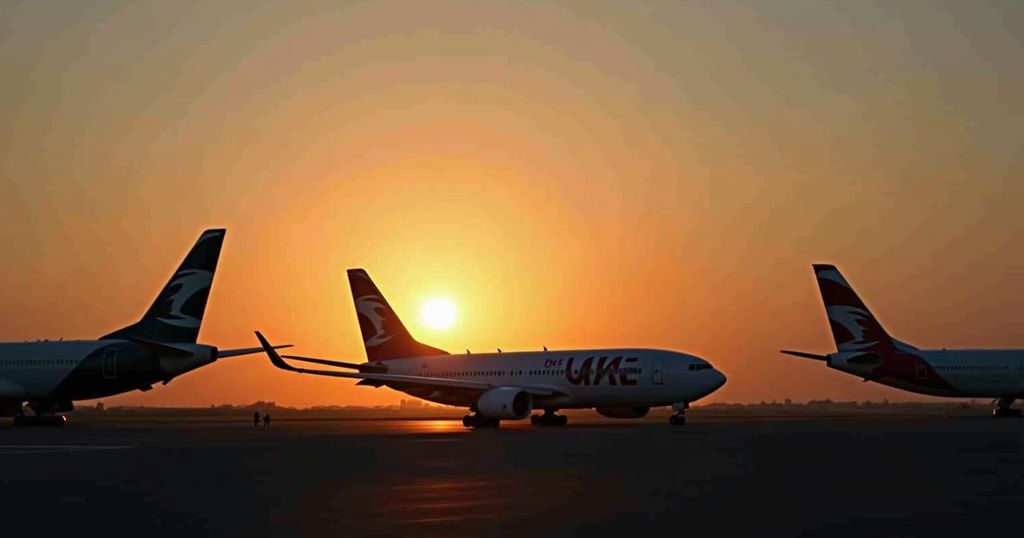UAE airlines have cancelled multiple flights to Iraq, Jordan, Iran, Oman, Kuwait, and the UK in response to heightened tensions following Iran’s missile strikes on Israel. These measures prioritize passenger safety amidst the risk of escalating conflict, with many neighboring countries closing their airspaces. Affected passengers are advised to seek updates through their respective airlines.
In a significant response to escalating tensions in the Middle East, UAE airlines including Emirates, flydubai, and Etihad Airways have officially cancelled various flights scheduled for Thursday. These cancellations stem from heightened security concerns following Iran’s recent missile strikes on Israel, which have prompted fears of further conflict in the region. In light of Israel’s threats of retaliation, airlines are prioritizing passenger safety. Dubai-based Emirates and flydubai have scrapped all flights to Iraq, Iran, and Jordan. Furthermore, Abu Dhabi’s Etihad Airways has halted its services to Tel Aviv. Amidst the disruption, Emirates has also cancelled flights to the UK, Oman, and Kuwait. All affected passengers will receive assistance with alternative travel arrangements, with recommendations to check for the latest updates on flights through their respective carriers. Additionally, flights to Beirut have faced significant interruptions, with Emirates suspending its routes to and from Beirut until October 8th, and flydubai until October 7th due to Israel’s ground activities in southern Lebanon. Air Arabia has also suspended its flights to Beirut, echoing similar actions taken by Egyptair and Royal Jordanian airlines. Other regional carriers, including Gulf Air and Qatar Airways, have likewise ceased operations in response to security advisories. As tensions remain high, various governments are urging their citizens to evacuate, highlighting the urgent need for caution amidst the ongoing conflict.
Amidst rising tensions in the Middle East, characterized by Iran’s significant rocket assault on Israel, the security situation in the region has considerably worsened. Israel’s counter threats and military activities have resulted in various neighboring countries, including Iraq and Jordan, closing their airspace, compelling airlines to take prudent measures for the safety of their passengers. This climate prompted key UAE airlines to cancel flights and suspend services, signaling a broader trend of precautionary actions among carriers operating in and around conflict zones. The European Commission, alongside aviation safety authorities, has even advised airlines to avoid flying over the airspaces of Lebanon and Israel altogether, underscoring the seriousness of the situation.
In summary, the cancellation of flights by UAE airlines reflects a proactive approach to passenger safety amid escalating tensions in the Middle East following Iran’s missile strikes on Israel. The closure of airspaces by neighboring countries has necessitated these measures. The situation remains fluid, with ample advisories for affected passengers to remain informed on their travel arrangements. With various international entities also advocating for the evacuation of their citizens from Lebanon and the surrounding areas, the ongoing conflict necessitates ongoing vigilance and a reassessment of travel plans.
Original Source: www.thenationalnews.com







